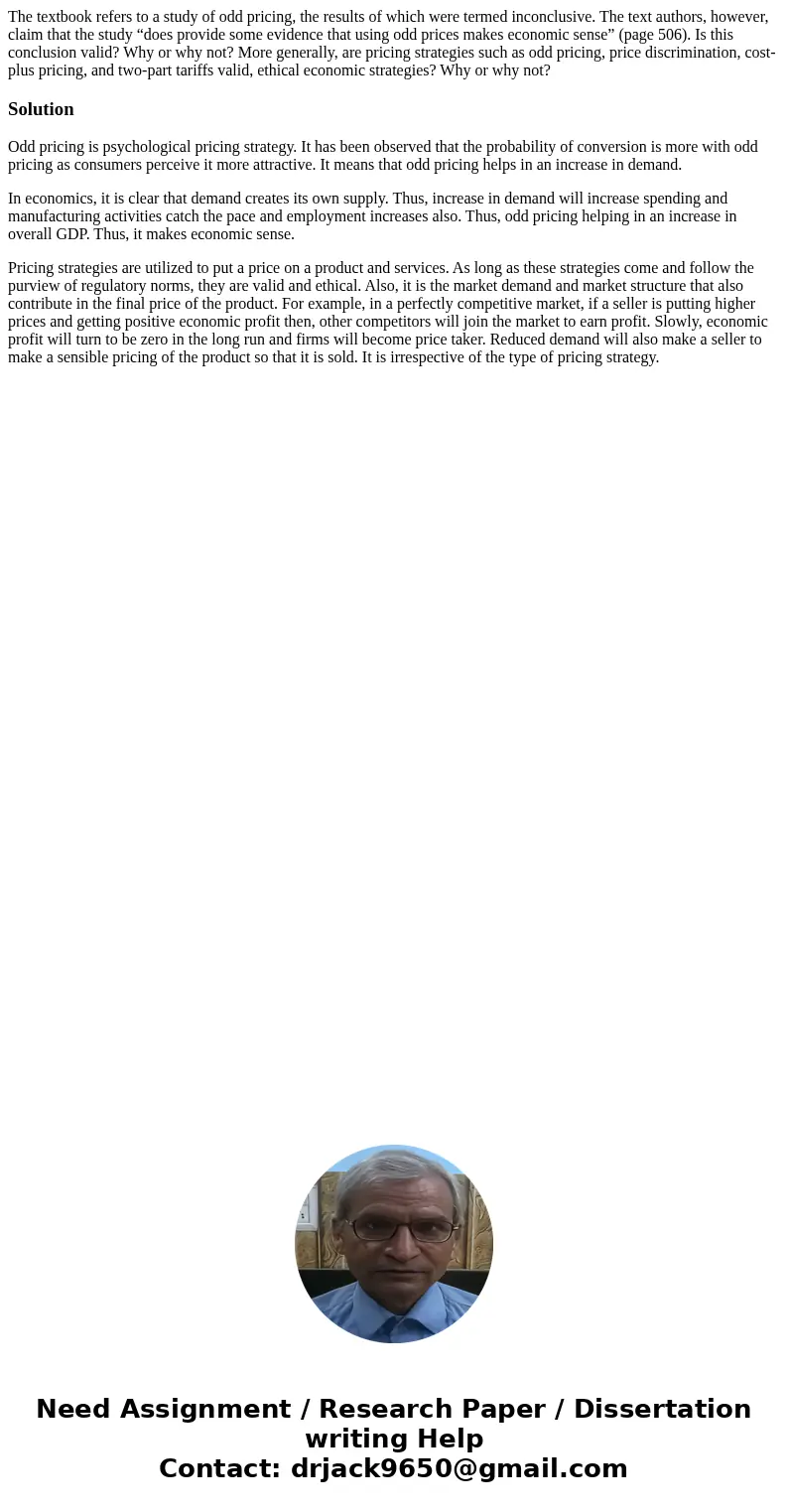The textbook refers to a study of odd pricing the results of
The textbook refers to a study of odd pricing, the results of which were termed inconclusive. The text authors, however, claim that the study “does provide some evidence that using odd prices makes economic sense” (page 506). Is this conclusion valid? Why or why not? More generally, are pricing strategies such as odd pricing, price discrimination, cost-plus pricing, and two-part tariffs valid, ethical economic strategies? Why or why not?
Solution
Odd pricing is psychological pricing strategy. It has been observed that the probability of conversion is more with odd pricing as consumers perceive it more attractive. It means that odd pricing helps in an increase in demand.
In economics, it is clear that demand creates its own supply. Thus, increase in demand will increase spending and manufacturing activities catch the pace and employment increases also. Thus, odd pricing helping in an increase in overall GDP. Thus, it makes economic sense.
Pricing strategies are utilized to put a price on a product and services. As long as these strategies come and follow the purview of regulatory norms, they are valid and ethical. Also, it is the market demand and market structure that also contribute in the final price of the product. For example, in a perfectly competitive market, if a seller is putting higher prices and getting positive economic profit then, other competitors will join the market to earn profit. Slowly, economic profit will turn to be zero in the long run and firms will become price taker. Reduced demand will also make a seller to make a sensible pricing of the product so that it is sold. It is irrespective of the type of pricing strategy.

 Homework Sourse
Homework Sourse